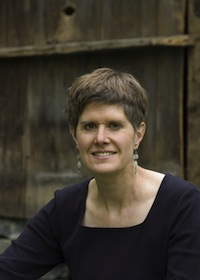 Water, oil and food mix together in the upcoming inaugural environmental film series at the University of Mississippi.
Water, oil and food mix together in the upcoming inaugural environmental film series at the University of Mississippi.
This semester, three films were shown in the Overby Center Auditorium, including “Blue Gold,” “Gasland” and “Fresh.” All were free and open to the public.
The film series is in conjunction with the interdisciplinary environmental studies minor, now in its fourth year, which is directed by Ann Fisher-Wirth, professor of English.
“The minor is thriving; we have more than 20 students enrolled, from a variety of different disciplines,” Fisher-Wirth said. “The film series will be a wonderful addition to our offerings, for all these new documentaries address a number of environmental issues, practices and controversies. They are good at reaching out to educate an audience.”
Director Sam Bozzo’s “Blue Gold: World Water Wars” screened Wednesday (Feb.1).
“Wars of the future will be fought over water as they are over oil today, as the source of human survival enters the global marketplace and political arena,” Bozzo writes in the film’s synopsis. “Corporate giants, private investors, and corrupt governments vie for control of our dwindling supply, prompting protests, lawsuits and revolutions from citizens fighting for the right to survive.”
“Gasland,” by filmmaker Josh Fox, was shown March 7. It is about the extremely controversial issue of “fracking,” or hydraulic fracturing. Fox was asked to lease his land for drilling, and he embarks on a cross-country odyssey uncovering a trail of secrets, lies and contamination. It is labeled as “part travelogue, part expose, part mystery and part bluegrass banjo meltdown.”
“Fresh,” set for April 4, was produced and directed by Ana Sofia Joanes. She celebrates the farmers, thinkers and business people across America who are reinventing the food system. Those people have witnessed the rapid transformation of agriculture into an industrial model and confronted the consequences: food contamination, environmental pollution, depletion of natural resources and morbid obesity. Forging healthier, sustainable alternatives, they offer a practical vision for a future of food and the planet.
The sponsors for the environmental film series include the environmental studies minor, the Media and Documentary Projects Center and the College of Liberal Arts.
“The film series is really important to me and I’m looking forward to it,” said Andy Harper, director of Media and Documentary Projects, who worked with Fisher-Wirth to choose the films.
Additionally, the internationally acclaimed environmental activist, biologist and author Sandra Steingraber is the inaugural Environmental Speakers Series lecturer at 7 p.m. March 21, also in the Overby Center auditorium.
Steingraber is an internationally acclaimed authority on many issues involving environmental toxicology. She began her career researching the environmental links to cancer, as a cancer survivor herself. She is the author of “Living Downstream: An Ecologist’s Personal Investigation of Cancer and the Environment” (Vintage, 1998), which was adapted for film in 2010 by the People’s Picture Company of Toronto. She also researched and wrote about environmental pollution and pregnancy, lactation and childhood in “Having Faith” (Berkley Publishing Group, 2003) and “Raising Elijah” (Da Capo Press, 2011).
She is involved in anti-fracking activism, and her lecture, “Environmental Human Rights from Silent Spring to Fracking Shale,” will examine the human rights dimensions of the environmental crisis and the role of artists, scientists, writers and college campuses in this struggle.
“Sandra Steingraber is an absolutely electrifying speaker and writer,” said Fisher-Wirth, who heard Steingraber speak at an Association for the Study of Literature and Environment conference in Boston. “She is a precise scientist who knows how to bring to the general public the issues that face everyone.”